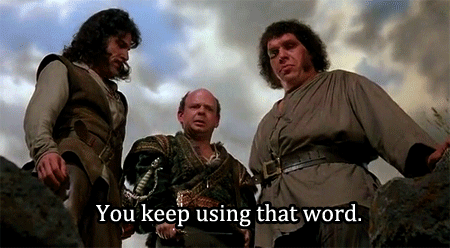What we say and what we do can be very different. By looking at our operational execution, we can be enlightened about what we actually do well. As we see how we engineer and operate, we can determine if we are executing for the customer we intend to have.
For example:
A popular web host who specializes in “WordPress” hosting describes themselves this way in their sales content:
[Company name] is the industry leader in managed WordPress hosting. All we think about is how to run WordPress in the best way possible. Our WordPress hosting platform keeps sites fast, scalable, and secure. Our team has spent years perfecting our WordPress hosting platform. Every feature, from [product name] and staging sites, to [product name] and [product name], has been built specifically for WordPress users.
As a potential customer that sounds pretty good. It gives you the general impression that all your WordPress hosting problems will be solved. You are promised they can provide the best possible way to have a fast, scalable and secure website. 😀
However, in the comments of their must-use plugin they state:
// Should we cache database queries for logged-in users?
// Normally no, but for high-admin sites it does help and might be worth the risk.
Implied in this code comment is the idea that: a) caching database queries for admin users is a bad thing, b) users with a lot of admin or dashboard activity consumes a lot of resources and caching queries reduces the load on their infrastructure/servers, and c) caching database queries will degrade performance and upset some users.
Caching database queries can make the admin of a website faster, but it contradicts the idea that a website is scalable. Cached database queries can inhibit the ability of an admin to have consistent expectations that the data they are presented with is current. It can also require additional actions by the admin to retrieve the more accurate data, if they are even given that option at all.
😖
Writing the Sales Pitch from Operational Execution
Does the operational execution match up with the sales pitch? In this case it’s ironic that the sales side of this company touts their commitment to performance, while their operations attempts to throttle power users.
If you were to re-write the sales pitch from the actual operational experience, I believe their sales pitch would read more like this:
[Company name] is the industry leader in managing an infrastructure dedicated to the WordPress application. All we think about is how to run servers and WordPress in the most efficient way. Our hosting platform keeps websites online. Our team has spent years perfecting our WordPress hosting platform. Every feature, from [product name] and staging sites, to [product name] and [product name], has been built specifically for hosting WordPress.
You would add an emphasis on infrastructure, and efficiency while de-emphasizing scalability.
The Operational Execution Targets a Different Customer
When you read the revised description of their services, who would find those services attractive? A website owner is never attracted to cached database queries, especially if their WordPress site is more data intensive where the data changes often (think e-commerce). However, a hosting company is attracted to the expertise to try and maximize their fixed-cost resources.
A Tale of Two Departments Trying to Keep Their Jobs
The Sales Department is incentivized to acquire customers and they do that by telling customers what they want to hear. The Engineering or Development Department is charged with keeping sites online and doing it in the most efficient way possible.
Both departments think they’re doing the right thing, but to what end? Will customers who sign up for an infrastructure that is specialized for WordPress sign up and stay even after they experience caching? Or will an investor looking to acquire expertise in efficiency be interested in the original sales pitch promising performance above all?
In the end, without new paying customers, a business dies.
Confusion Breeds Mediocrity
If the management team of this WordPress host was serious about the message they pitch to new customers, they would align the engineering processes to match the goals. They wouldn’t engineer their platform to decrease data reliability and scalability, especially in a way that is so hidden from the normal WordPress user (making that decision in the code). Instead they would figure out how they can make their platform more reliable and scalable, and more transparent.
We work with the customers of this WordPress web host and we’ve taken notice of their tactics that renege on their sales promises; or at least we assert that they don’t recognize the disconnect between what they say and what they do.
Are Sales and Operations aligned?
What do you do well? What will always be in style to your customers? Can you do more of what people want?
I’m not saying we have this perfectly worked out at Event Espresso and Event Smart. But, I’d recommend discussing with your team whether you’re engineered to fulfill your promises. If your sales and engineering are not aligned, can you change the engineering to match the sales pitch, or should you target a different customer based on your current engineering strategy?
